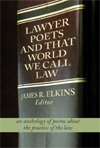
An earlier version of this piece appeared here in The Alabama Lawyer.
As a staff attorney to Chief Justice Roy S. Moore, I read several briefs and petitions each day. I have noticed that certain grammatical errors are systemic among attorneys. Some errors are excusable; others aren’t. Here are seven errors that are inexcusable.
1. “Whoever” and “Whomever”
Many attorneys do not know the difference between whoever and whomever. Test your knowledge by answering these questions:
Which of the following sentences is correct?
A. Give the document to whoever requests it.
B. Give the document to whomever requests it.
Which of the following sentences is correct?
A. Whoever arrives first will get a copy.
B. Whomever arrives first will get a copy.
If you answered A to both questions, you were correct. Here is a trick to help determine whether to use whoever or whomever:
STEP ONE: Imagine a blank space where you wish to use whoever or whomever.
Example: Give the document to ______ requests it.
STEP TWO: Split the blank space to create two sentences; then fill in the blanks with the pronouns he or him.
Example: Give the document to him. He requests it.
STEP THREE: Whenever you fill in the blank space with a him/he combination, use whoever. As we have already seen, the previous sentence should read, “Give it to whoever requests it.” Whenever you fill in the blank space with a him/him combination, use whomever.
Him/He = whoever
Him/Him = whomever
Here are more examples:
STEP ONE: You should hire ______ Pete recommends.
STEP TWO: You should hire him. Pete recommends him.
STEP THREE: You should hire whomever Pete recommends.
STEP ONE: This letter is to ______ wrote that brief.
STEP TWO: This letter is to him. He wrote that brief.
STEP THREE: This letter is to whoever wrote that brief.
STEP ONE: The prize is for _____ wins the contest.
STEP TWO: The prize is for him. He wins the contest.
STEP THREE: The prize is for whoever wins the contest.
STEP ONE: The lawyer made a good impression on ______ he met.
STEP TWO: The lawyer made a good impression on him. He met him.
STEP THREE: The lawyer made a good impression on whomever he met.
STEP ONE: The lawyer tried to make a good impression on ______ was there.
STEP TWO: The lawyer tried to make a good impression on him. He was there.
STEP THREE: The lawyer tried to make a good impression on whoever was there.
2. “Who” and “Whom”
The difference between who and whom has fallen out of favor in common speech, but retains its importance in formal writing. Use who if the pronoun is a subject or subject complement in a clause. Use whom if the pronoun is an object in a clause. A trick to help determine whether to employ who or whom is to rephrase the sentence using a personal pronoun such as he or him. Consider the following:
A. Proper: Whom did you meet? (Rephrase: I met him.)
Him is objective, so whom is proper.
Improper: Who did you meet?
B. Proper: Who do you think murdered the victim? (Rephrase: I think he murdered the victim.)
He is subjective, so who is proper.
Improper: Whom do you think murdered the victim?
C. Proper: Who was supposed to finish that brief last week? (Rephrase: He was supposed to finish that brief last week.)
He is subjective, so who is proper.
Improper: Whom was supposed to finish that brief last week?
D. Proper: Justice Brown is the man for whom I voted. (Rephrase: I voted for him.)
Him is objective, so whom is proper.
Improper: Justice Brown is the man who I voted for.
3. “As Such”
I used to practice at a mid-sized law firm in Atlanta. Tasked with reviewing the writing of all associate attorneys at the firm, one partner became hardheaded about two words: “as such.” He always struck through the word “therefore” and replaced it with the words “as such.” He did this so often that I finally decided to correct him. I was tired of watching him substitute a grammatical error for a sound construction.
When I spoke up, he got defensive. “As such means ‘therefore,’” he said.
He was wrong.
The Random House Dictionary (2013) describes “as such” as an “idiom” that means “as being what is indicated” or “in that capacity.” In other words, after you have described something, you use the phrase “as such” to refer back to that something “as described.” Here are examples:
- He is the president of the university; as such, he is responsible for allocating funds to each department.
- This is a matter of law; as such, it is subject to de novo review.
- Theft is a crime; treat it as such.
In these examples, “as such” properly refers back to a definite antecedent.
“As such” appears regularly in legal writing. Whenever I see this construction misused, I think about that partner in Atlanta and become agitated.
“As such” is a simple construction; as such, it entails a simple application. Don’t be shy about calling out your colleagues when you see them misuse this construction, even if you are a “lowly” associate. You might just save them—and the partners—from embarrassment.
4. The Colon
Although many rules govern the use of colons, I want to focus on this one: Never place a colon between a preposition and its object or between a verb and its complement. Likewise, never place a colon after such words or phrases as especially, including, or such as.
These sentences violate this rule:
- He was convicted of several crimes, including: first-degree robbery, arson, third-degree burglary, and second-degree forgery.
- Some affirmative defenses are: statute of frauds, waiver, statute of limitations, and contributory negligence.
- Most restrictive covenants have provisions about the developer or declarant such as: “Property Subject to the Declaration,” “Easements,” “Assessments,” and “Membership.”
- She enjoys the sites, especially: the courthouse, the town square, and the memorial.
No colon is necessary in these sentences.
5. Subject-Verb Agreement: “Neither,” “Nor,” “Either,” “Each,” and “Number”
Attorneys generally understand subject-verb agreement. A verb must agree with its subject in number. That is, a singular subject must take a singular verb; a plural subject must take a plural verb. The following words, however, give attorneys trouble: neither, nor, either, each, and number. What follows should clarify how to make these nouns agree with a verb.
Neither Mel’s clients nor his associate ___ going to the meeting tomorrow.
When you pair neither and nor as conjunctions linking two nouns, choose the noun closest to the verb and let that noun determine whether you use is or are. In the example above, associate is closest to the verb. Associate is singular, so the proper verb is is.
Neither of the partners ___ attending the meeting.
Neither is singular and the subject of the sentence. It requires a singular verb: is. The verb is not are if the plural noun (partners) is not the subject. Partners is not the subject; it is part of a prepositional phrase.
___ either of you available to take his deposition tomorrow?
Either is singular and the subject of the sentence. It requires a singular verb: is. The verb is not are if the plural noun (you) is not the subject. You is not the subject; it is part of a prepositional phrase.
Each of you ___ contributed valuable insights to the case.
The pronoun each is the subject of the sentence. Each is singular and requires a singular verb: has. Many attorneys will write have because they think that each is plural or that the verb must modify the plural noun you. You is part of a prepositional phrase and cannot serve as the subject of the sentence.
The number of thefts ___ increasing.
Number can be singular or plural depending on the context. Here, number is used with the definite article the. Therefore, the singular verb (is) applies. In most cases, if number is used with the indefinite article a, then the plural verb (are) applies.
6. The Possessive Form of Nouns Ending in “S”
My sixth grade teacher instructed me never to add ’s after a singular noun ending with an s or s sound. She was wrong. The trick to nouns ending with an s or an s sound is that no trick exists: the rule is the same for these nouns as for all other nouns (with a few notable exceptions, such as the words “its” and “yours”). To form a singular possessive, add ’s to the singular noun. To form a plural possessive, add an apostrophe to the plural noun. Here are some examples:
Singular Noun
Mr. Jones Mr. Jones’s
Mrs. Burnes Mrs. Burnes’s
The boss The boss’s
Plural Noun
The Joneses The Joneses’
The Burnses The Burnses’
The bosses The bosses’
7. “Only”
Only is one of the most regularly used words in the English language. It is also one of the most regularly misused modifiers. Below are examples of how attorneys misuse only in petitions and briefs. I have altered the language in these examples to conceal the identity of the authors.
A. “The appellant only references the reason why the appellee did not seek counseling.”
This sentence implies that the appellant does nothing—nothing at all—but reference the reason why the appellee did not seek counseling. The appellant does not eat, sleep, think, talk, love, feel, or breathe. The only thing he does is reference the reasons why the appellant did not seek counseling. He must be a robot. The author of this sentence intended to say the following: “The appellant references only the reason why the appellee did not seek counseling.” This revised sentence means that, of all the reasons from which he could have chosen, the appellant referenced only one. The appellant could have referenced other reasons, but did not.
B. “He only robbed two people.”
This example suggests that “he” has never done anything—anything at all—but rob two people. If all you have ever done is rob two people, your entire existence has been a crime. The author of this sentence intended to say the following: “He robbed only two people.” This revised statement should cause one to ask, “That’s it? Just two people?”
C. “The agency granted the application on the condition that the hospital only will move 300 beds.”
A hospital that does nothing but move 300 beds will not help sick patients. The author of this sentence should have written, “The agency granted the application on the condition that the hospital will move only three-hundred beds.” In this revised sentence, “only” modifies “three-hundred beds” rather than the verb “will move.”
■
Attorneys are educated; we tend to avoid using language if we aren’t certain about its grammatical soundness. But something about the foregoing rules baffles us.
The rules, though, are easy. What’s difficult is overcoming habits and industry-wide error. If you aren’t certain about a rule, don’t just ask your colleagues for the solution. And don’t take your colleagues’ suggestions at face value. Consult a good, reliable grammar book. Doing so will improve your writing and possibly raise the quality of writing among the entire profession.



